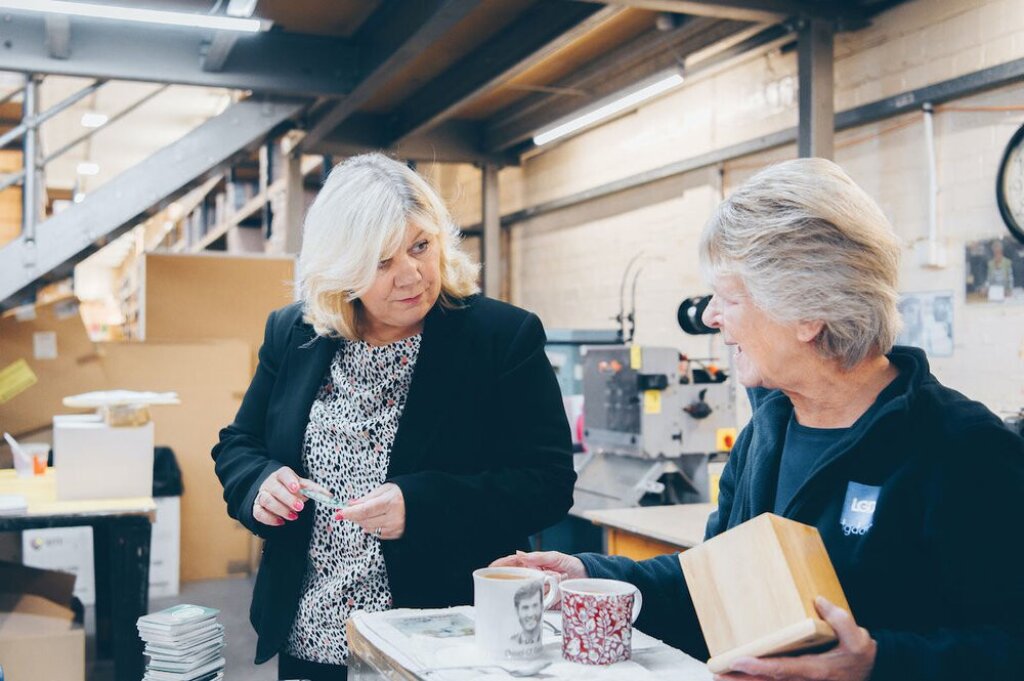Helen Tanner founded her technology company Data³ in 2017. In mid-2021, she started looking to scale it up by boosting the sales effort around a key product. This, she believed, would require doubling the number of employees to around 20, with a specific focus on sales people.
“I’m the solo founder, and I had no board or formal advisers, so given the opportunity to get objective expert advice, new perspectives and fresh thinking from a diverse range of business leaders, I thought ‘why not?’,” she said.
The first meeting with the Be the Business board kicked off with everyone introducing themselves to each other. The advisory board members had backgrounds ranging from banking to fundraising to marketing to professional development.
“Then we jumped straight in,” recalled Helen. “I wasn’t remotely nervous about opening up to them: I’d asked for their help and needed their advice, so I went into it openly and optimistically, and they all welcomed me.”
Even in the first meeting the value of the board’s diversity was obvious to Helen: “They were able to apply their varied skills and experience in a very practical way, and I realised immediately they could add value to my business.”
Adding value immediately
Helen’s challenge was that the business wasn’t getting enough sales leads or conversions for its key product. After listening to her story, the board suggested that the company didn’t have a sales problem, it had a marketing problem.
“They quickly identified something in the wider business that I’d not even thought about – the fact that our marketing needed to be working harder for us,” said Helen. “That’s a really good example of how they made us look sideways. I’d gone in asking for help with scaling sales, or how to get traction with a product launch, and they said, ‘well, you’re recruiting: do you need to rethink the role you’re recruiting for?’”
As a result of this discussion Helen and her team updated their website, and focused on a single punchy message designed to hook potential customers in, and they have brought in a marketing agency to work with them. They’ve also created a sales and marketing plan, and Helen is focusing her sales strategy on a particular sector.
“The board has challenged me hard, but always in a positive, constructive and supportive way,” said Helen. “It was a relief to hear their own experiences and lessons they’d learned along the way. We brought them in to find gaps in our thinking, but the validation they gave us was also very important.”
“The board quickly identified something in the wider business that I’d not even thought about – the fact that our marketing needed to be working harder for us.”
Helen Tanner, founder of Data³ – SME board participant
A thought-provoking experience
The board also encouraged her to consider new approaches – some of which, she said, are a bit ‘out there’. “One was to explore the idea of ‘data for good’. There’s a great rationale for that, but at the moment I don’t think we’d benefit from it. But that sort of suggestion sows a seed. It’s an example of how they get us to think out of the box.”
The whole experience has been “utterly thought-provoking” for Helen. As she explained: “I’ve experimented, played, tested, succeeded, failed and learned in all areas of the business, and I’ve enjoyed every second of the process.”
Not only has the work done saved her an estimated £10,000, but it has smoothed the transition into a new phase of growth. She is optimistic about sales of the new product, staff numbers will nearly double, and they’ve opened a franchise in New Zealand, with another in Australia imminent.
“I’m indebted to the board for the help they’ve given us,” she said. “It’s also been a lot of fun.”
Headline takeaways
Boards provide extra insight for solo business owners
A board can provide objective expert advice, new perspectives and fresh thinking for leaders.
Go into the process with an open mind
Remember, the board is there to help your business succeed.
Be prepared to be challenged
As Helen found, a board will challenge hard but always in a constructive and supportive way.



